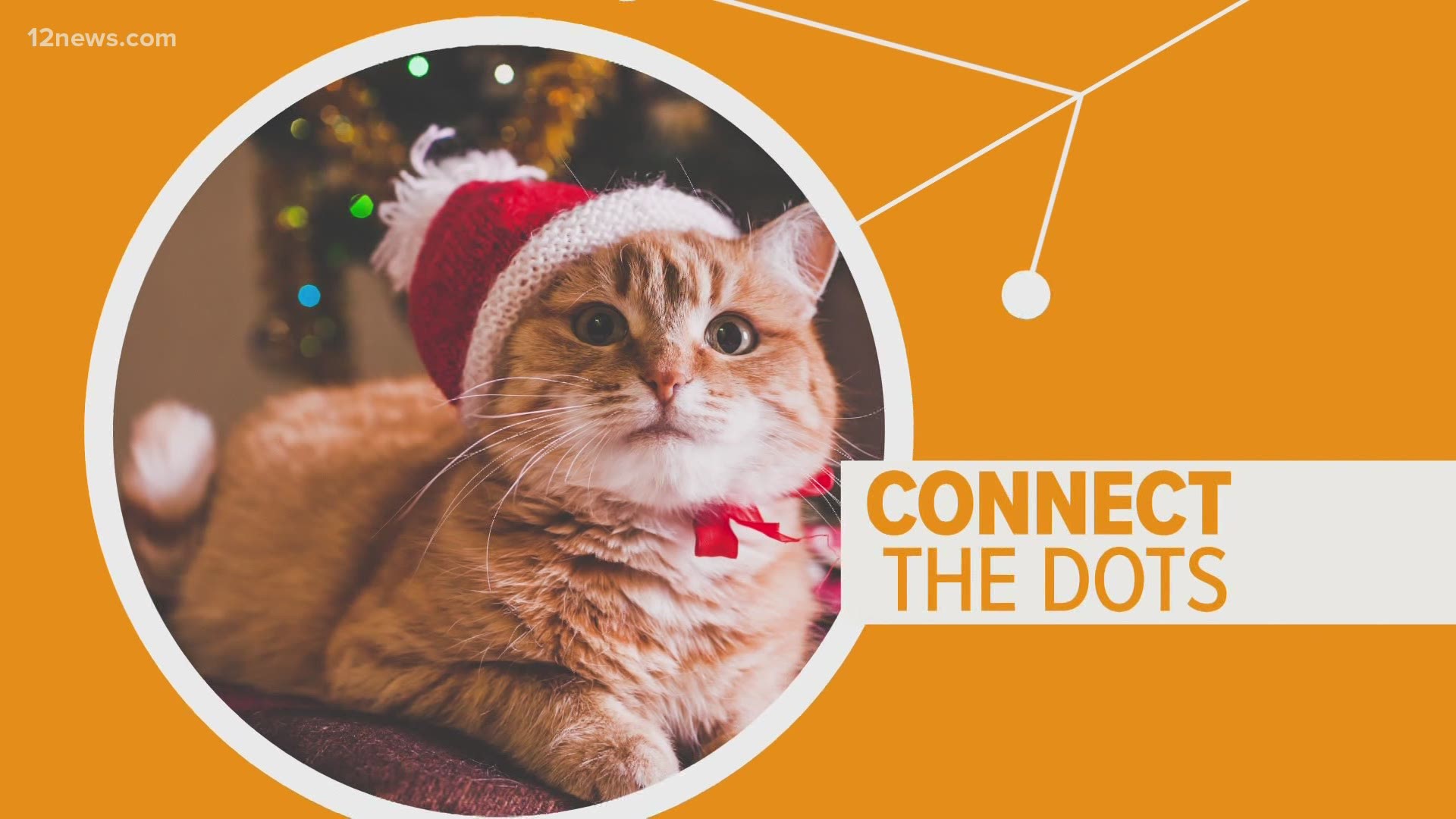WASHINGTON — The holidays are a great time to celebrate, spend time with loved ones and relax — and an awful time to make an emergency trip to the vet. Many of the foods and decorations humans love can pose an unexpected danger to cats and dogs.
Here's a quick look at some of the most common health risks your furry friend could face, and how to avoid them.
Hey, don't eat that!
Many pet owners find themselves playing an impromptu game of fetch year-round when their dogs decide to start chewing something they shouldn't. That's especially true during the holidays, with your pet being tempted by shiny decorations, toxic plants and delicious-smelling people food.
"The most common things we're gonna see is ingestion of inappropriate substances," said Dr. Lori Teller, the president of the American Veterinary Medical Association. "So that could be holiday decorations hanging up, or food. Those are going to be the two biggies."
Cats, for example, are often lured in by shiny tinsel. If they eat it, it can get stuck in their stomach or intestines — a life-threatening situation where emergency surgery can be needed.
Rich or sweet holiday table scraps can also pose a problem. Even foods that are safe for humans can hurt your pet, and it's not just chocolate that can be dangerous. Fatty or fried foods, like your Christmas ham or turkey, can put dogs at risk of pancreatitis, and common spices like onion and garlic are poisonous for both cats and dogs. And while most dogs won't turn down a leftover bone, these can splinter and cause serious harm to their digestive tracts.
Baked goods can also be poisonous to pets due to common ingredients like nuts, chocolate and raisins. One big risk you may not know about is the artificial sweetener xylitol.
"That can be a death knell for your dog," Teller said. "Within 48 hours, they can go into liver failure and die from ingestion of xylitol."
This isn't a full list — other things to watch out for include alcohol, yeast dough and dairy. Numerous veterinary organizations have online lists of holiday food to watch out for. Here's a list of dangerous foods from the American Society for the Prevention of Cruelty to Animals, and a list of dog-safe treats from the American Kennel Club.
"Making sure your pets can't ingest something that they shouldn't, is probably the biggest piece of advice I can give," Teller said.
Deadly decorations?
Even when your pet isn't trying to eat them, some decorations can be risky.
Candles, for example — if your cat has the "zoomies" and is jumping around your living room alone, you don't want him or her to crash into a lit Hanukkah menorah.
"Really try not to have candles or something lit with a flame around your pet," Teller said. "If you are going to do that as part of your holiday celebration, make sure your pet is not left around an open flame unsupervised."
It's also a good idea to make sure your Christmas tree is firmly anchored so it doesn't fall down if your pet decides to get a closer look when you're not around. Dogs may leap up to inspect popcorn strings or ornaments that look like toys, and cats don't need a reason.
Also worth noting: AVMA says electric lights can cause burns if your pet chews the cords, and holiday plants like pine, mistletoe and holly can be poisonous.
By keeping dangerous holiday foods and decorations out of your pet's reach, you can go a long way towards avoiding a sick pet or even a trip to the vet's office for emergency surgery.
"My top recommendation would be prevention; an ounce of prevention is better than a pound worth of cure," Teller said.

